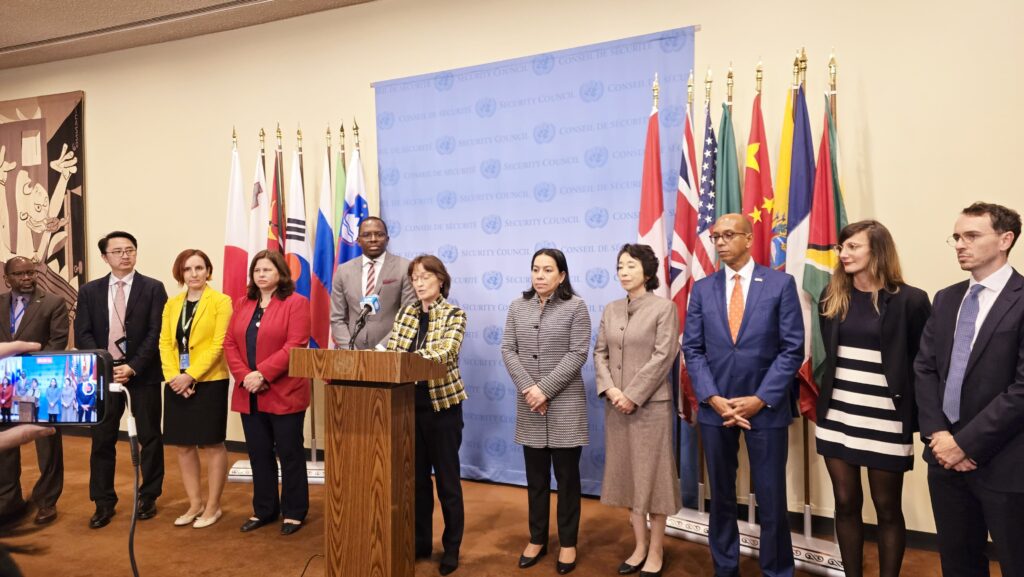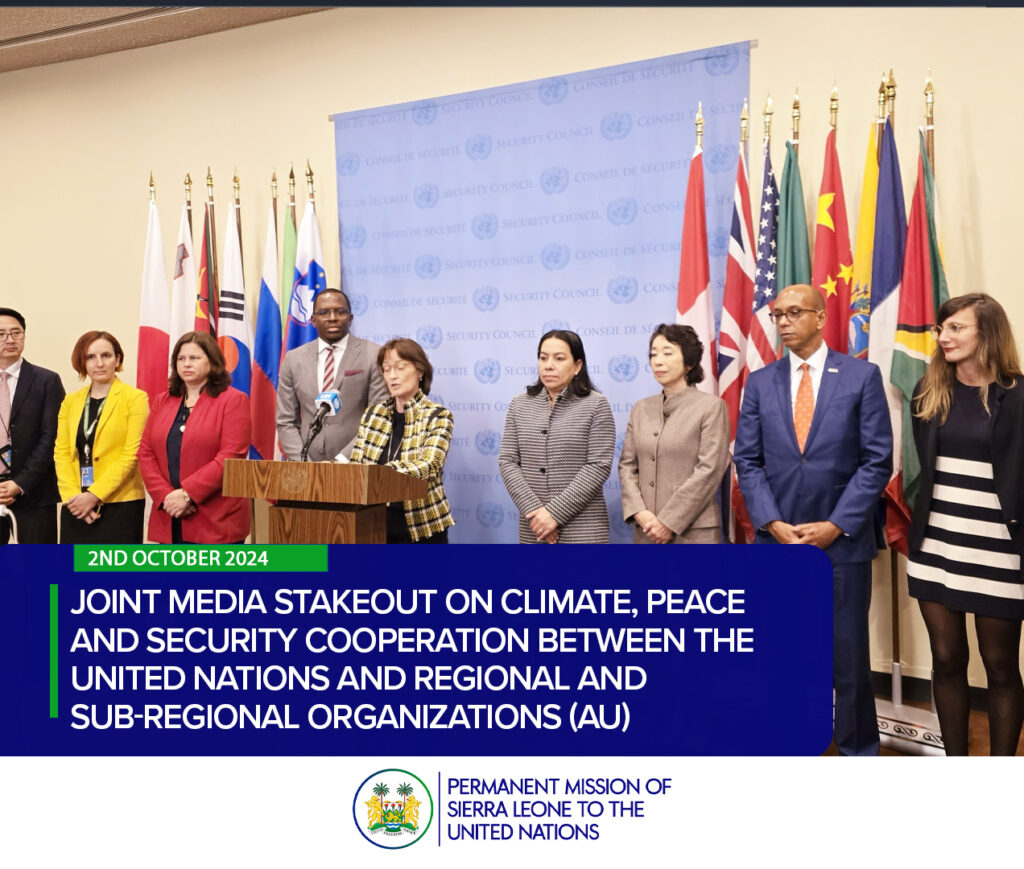Today, the Security Council convenes to discuss the cooperation between the United Nations (UN) and regional and sub-regional organizations, focusing on the African Union (AU). On this occasion, the Security Council members that have joined the Joint Pledges on Climate, Peace and Security, France, Guyana, Japan, Malta, Mozambique, the Republic of Korea, Sierra Leone, Slovenia, the United Kingdom, the United States and my own country, Switzerland, have come together to underscore the importance of this cooperation with regards to addressing the adverse effects of climate change on international peace and security.
We underline the leadership of the African Union, together with regional and sub-regional organizations, in enhancing collective action to address climate-related peace and security risks. Together, they have spearheaded institutional innovations and cross-sectoral cooperation. Such efforts include those of the Peace and Security Council of the African Union, which has held regular meetings and adopted relevant decisions. We also welcome the development of the Common African Position on Climate Change, Peace and Security.
Today, we have come together to highlight three key messages:
First, we need to focus on prevention and resilience building. This involves increasing efforts towards sustainable development as well as collaborative and inclusive multi-stakeholder action, including with women- and youth-led organizations. Conflict-sensitive climate adaptation, mitigation, finance and resilience actions can be an important lever for peacebuilding. We therefore welcome the deepening of the partnership between the African Union and the United Nations on Climate, Peace and Security.
Second, we underscore the importance of proactive and comprehensive joint action for prevention in support of the UN Secretary-General’s New Agenda for Peace, which calls for strong partnerships between the UN and regional frameworks. To deepen this dialogue, we look forward to the forthcoming exchange in the context of the 9th Joint Informal Seminar between the members of the UN Security Council and the Peace and Security Council of the African Union.
Third, we reiterate the critical need to further enhance data collection, data sharing, capacity-building and coordination of risk assessments to inform early warning systems related to climate, peace and security challenges. The latter are also at the heart of prevention strategies, support early action, and could save lives. We take note of the first Continental Africa Climate Security Risk Assessment and the need for support and capacity-building to mitigate risks related to climate-security.
We look forward to continuing our cooperation with the African Union and to work towards addressing the growing impacts of climate change on international peace and security.





